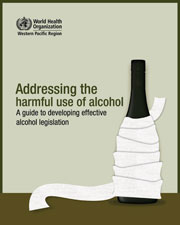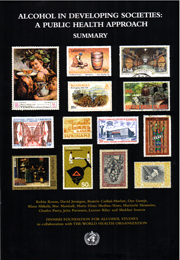
Alcohol advertising works while alcohol education seems to have little effect
Alcohol advertising seeks to influence young people’s drinking habits while alcohol education programs appears not to have the same effect in preventing youth from drinking. This is the key result of a study from Zambia which was published recently.
The study has analysed data from the Global School-Based Student Health Survey from 2004. Data were collected from more than 2.200 students primarily 11 to 16 years of age. Four statistical models were used to test possible associations between alcohol marketing and education and alcohol use, while controlling for possible confounding factors.
An article about the study from Zambia was recently published in the Journal of Environmental and Public Health, Volume 2011. The study was produced by five researchers from Zambia and the US; Monica H. Swahn, Bina Ali, Jane B. Palmier, George Sikazwe and John Mayeya.
The authors conclude that alcohol marketing, specifically through providing free alcohol through a company representative, was associated with drunkenness and problem drinking among the youth, after controlling for demographic characteristics, risky behaviours, and alcohol education. “Surprisingly, receiving alcohol education that underscores the dangers of alcohol and knowing how to refuse alcohol when given were not statistically associated with either drunkenness or with problem drinking”.
“These findings are troublesome”, say the authors in their article, “and indicate that new strategies are needed to prevent and reduce levels of alcohol use and associated adverse outcomes through other strategies than education”. Their conclusion is that restricting alcohol marketing is an important policy strategy for reducing alcohol use and its dire consequences among vulnerable youth.
![]()
![]()
Developed with CustomPublish CMS by Nettinfo AS




